
Politics
16:27, 07-Dec-2017
Putin re-election bid: get ready for the Russia 2018 election
By Jasmine Cen
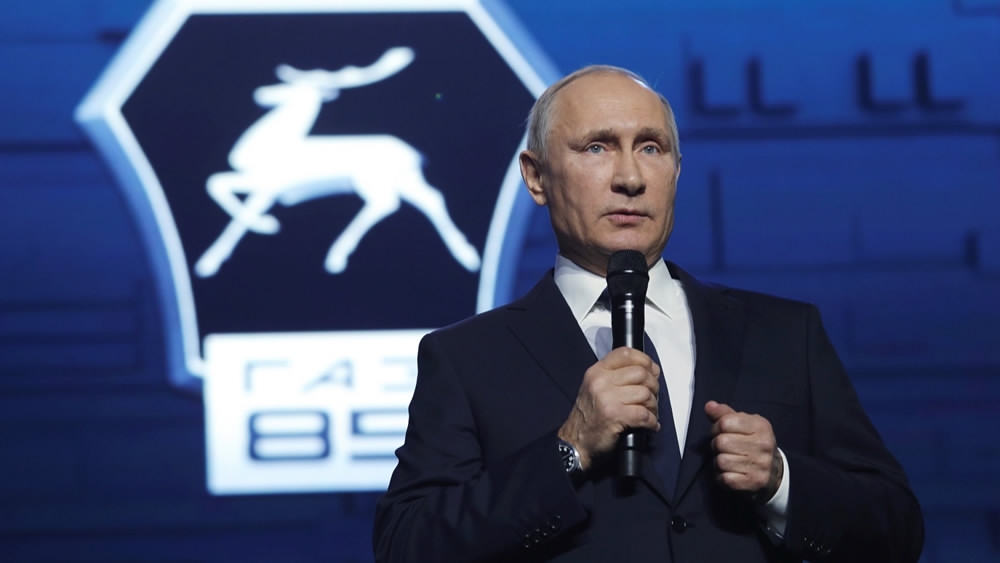
Vladimir Putin has made the long-expected announcement that he is seeking another six-year presidential term in March's election, a move that will make him the longest serving president since Joseph Stalin.
If he wins, Putin will mark his 24th year in the office at the end of the term in 2024, including his time serving as Russian president and prime minister.
"I will put forward my candidacy for the post of president of the Russian Federation," said Putin during a visit to GAZ car factory in the city of Nizhny Novgorod on Wednesday afternoon.
"There is perhaps no better place and better excuse to announce this," Putin said. "Russia will go only forward. And no-one will ever stop her."
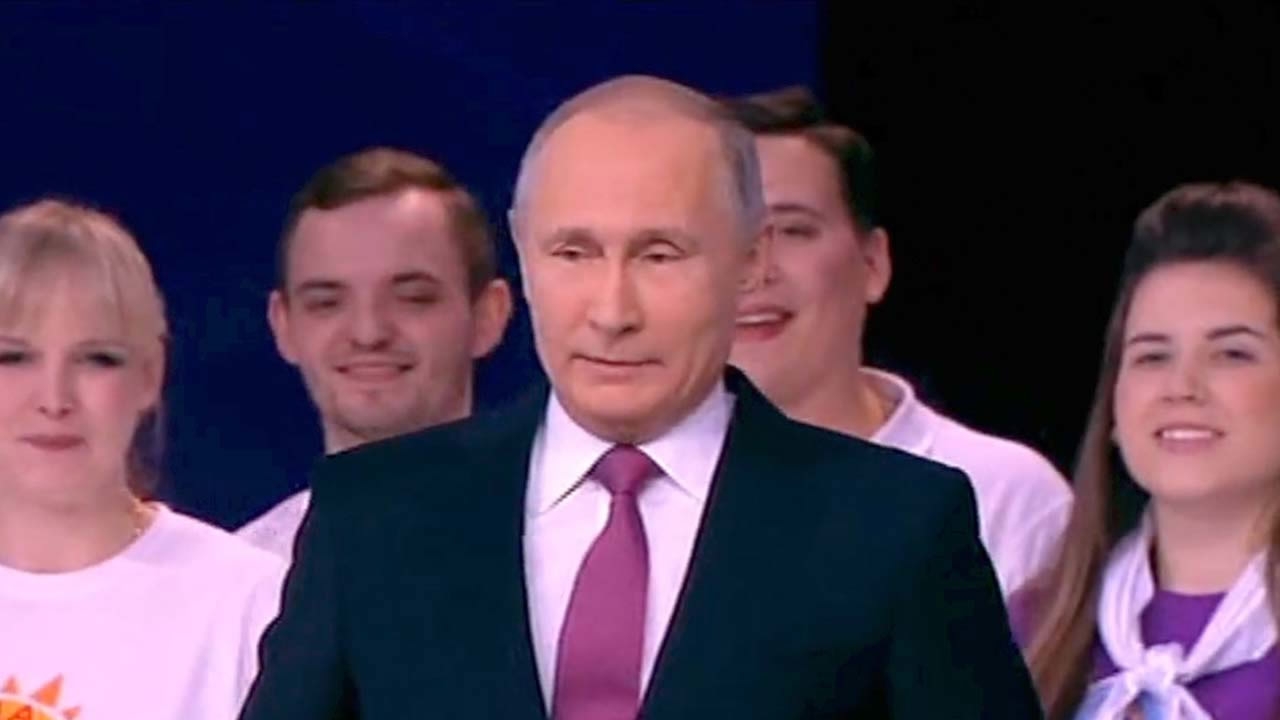
Putin's approval rating regularly tops 80 percent, according to various states and independent polls, but the delayed announcement from Putin has fueled conspiracy theories and is seen as political maneuvering by the Kremlin.
Top Putin critic Alexei Navalny, who declared a presidential bid to run in March election but was disqualified due to a prison sentence for fraud, tweeted "I suggest we don't agree."
While social media was abuzz, the 65-year-old leader received a resounding chorus of "Yes!" after Putin took to the stage at a young volunteer forum and asked, "Do you trust and support me?"
'High approval rate around 80 percent'
The high approval rating is said to be part of Putin's propaganda campaign, but experts recognize Putin's contribution to Russia since 2000.
A report released by the Pew Research Center in June shows 34 percent of those polled said Russia is respected around the world, which is up from 16 percent in 2012.
87 percent of participants said they have confidence in Putin to do the right thing when it comes to international affairs, while 12 percent said they had no confidence.
Putin's achievements are not just limited to strengthening the role of Russia on the international stage, but also the reform of the army and the military-industrial complex. Data shows Russian spending on military surpassed the United States with a record 81 billion US dollars.
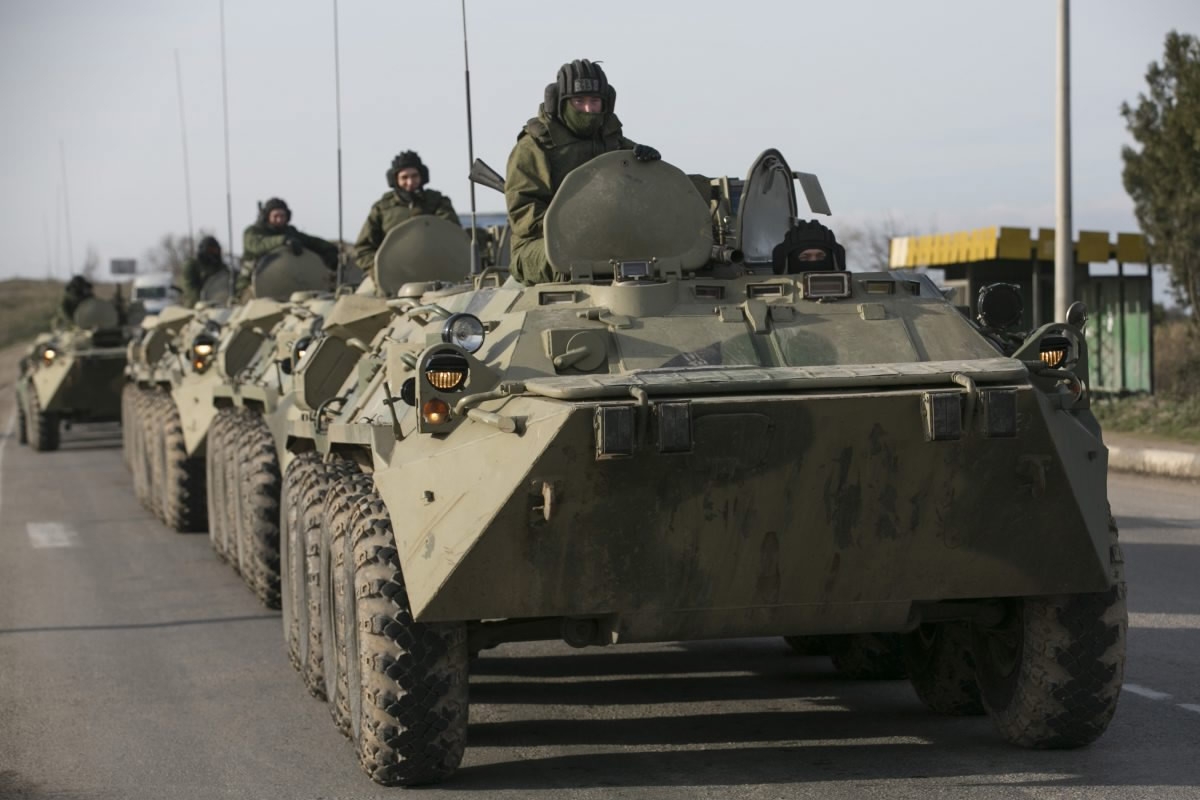
Russian soldiers ride on military armored personnel carriers on a road near the Crimean port city of Sevastopol March 10, 2014. / Reuters Photo
Russian soldiers ride on military armored personnel carriers on a road near the Crimean port city of Sevastopol March 10, 2014. / Reuters Photo
"It is under Putin that our armed forces again became respected. Over the past 15 years we've been through a restructuring of the military-industrial complex. On the initiative of the President powerful vertically integrated holding companies were created, each of which brings together the entire chain of developers and manufacturers," said Igor Korotchenko, chief editor of "National Defense" magazine.
The Russian military is ranked the second strongest military force in the world after the United States, according to a report on globalization from Credit Suisse.
However, the media has criticized the economy on Putin's watch and how the government has mitigated the impact of the Global Economic Crisis on the nation’s fragile economy.
A global deal between members of OPEC and Russia to curb crude oil production has been hurting economic growth, Russia’s economy minister Maxim Oreshkin said in October.
Under the deal, Russia agreed to cut 300,000 bpd from its October 2016 output.
Oreshkin and other officials believe the country will be on track after two years of recession, but data on retail sales and others have raised questions about the recovery.
From KGB agent to president
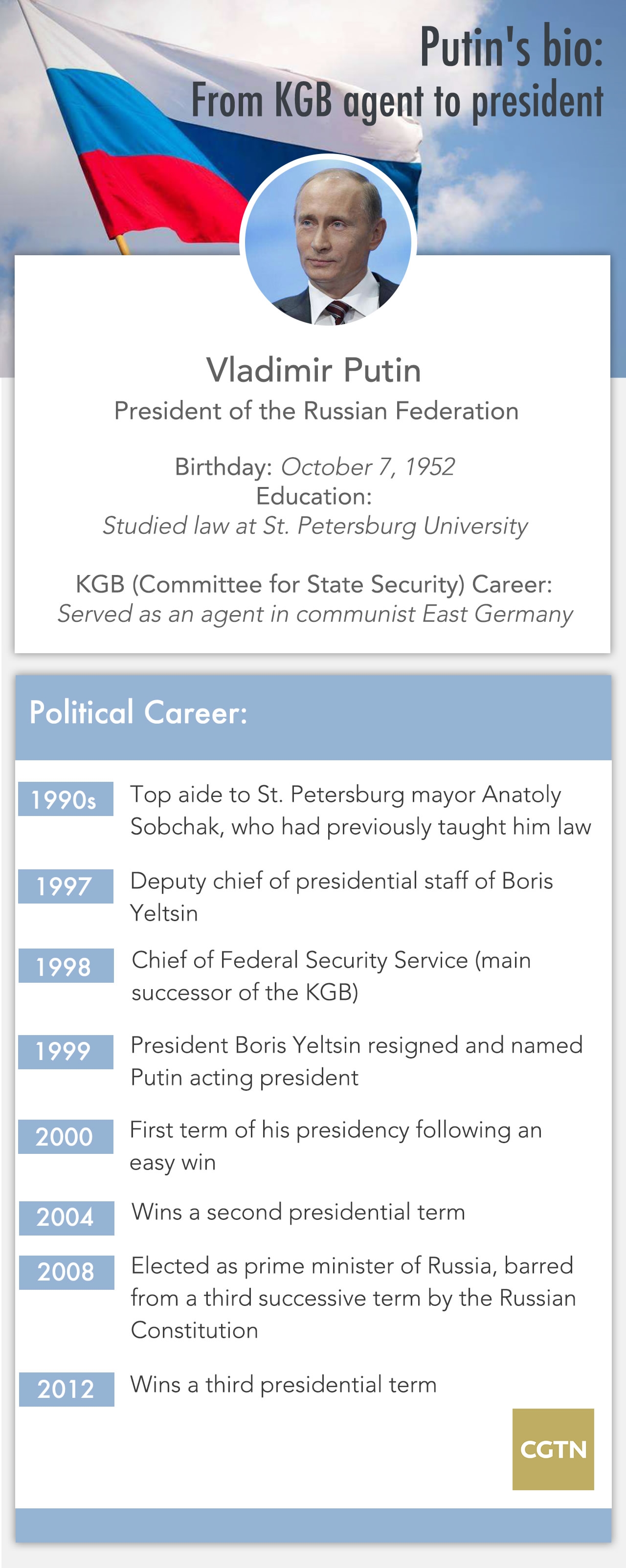
'Little real competition'
The two candidates who have announced presidential bids for the upcoming election in March are anti-corruption campaigner Alexei Navalny, who is disqualified due to a prison sentence for fraud, and journalist Ksenia Sobchak, daughter of Putin’s political mentor Anatoly Sobchak.
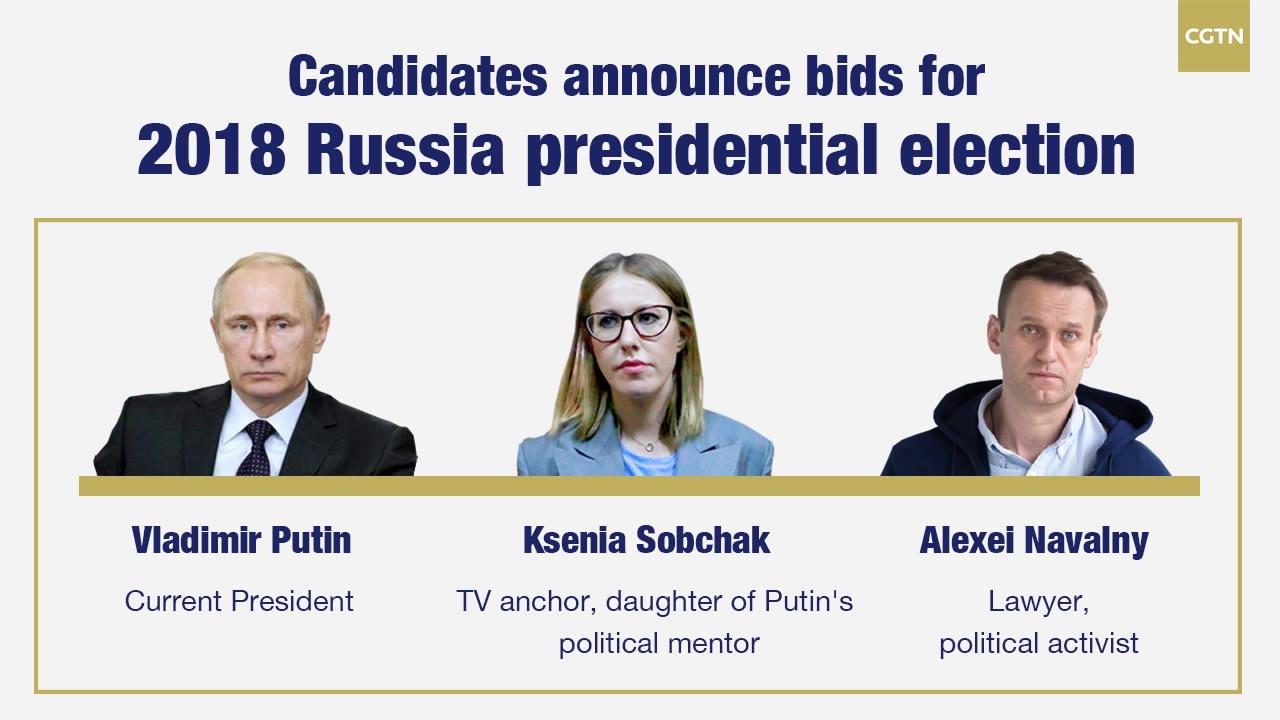
In an interview with The Guardian, Sobchak admitted that, without back up from any political party, she has little chance of winning, despite acting as a lightning rod for all those dissatisfied by Putin's presidency.
"Any window of opportunity is important. If your hands are tied, you should swim with your legs. If your legs are tied, you should try to hold on to the edge of the boat with your teeth. We have to use every option," she said.
The only one who has actively been carrying out a grassroots movement is the opposition leader Alexei Navalny, but he is unlikely to stand in the election due to his criminal conviction. Navalny's campaign manager Leonid Volkov was arrested for allegedly breaking public gathering rules, sparking a series of controversies which have been used as a politicizing maneuver by Putin.
Navalny said he will call for an "active boycott" if he is not allowed to stand in the race.
'Adapt the regime to Putin's future status '
it has been speculated that the Kremlin may be considering a preferred successor, as it is worried about voter apathy and the uncertainly of the final turnout rate for Putin's political campaign.
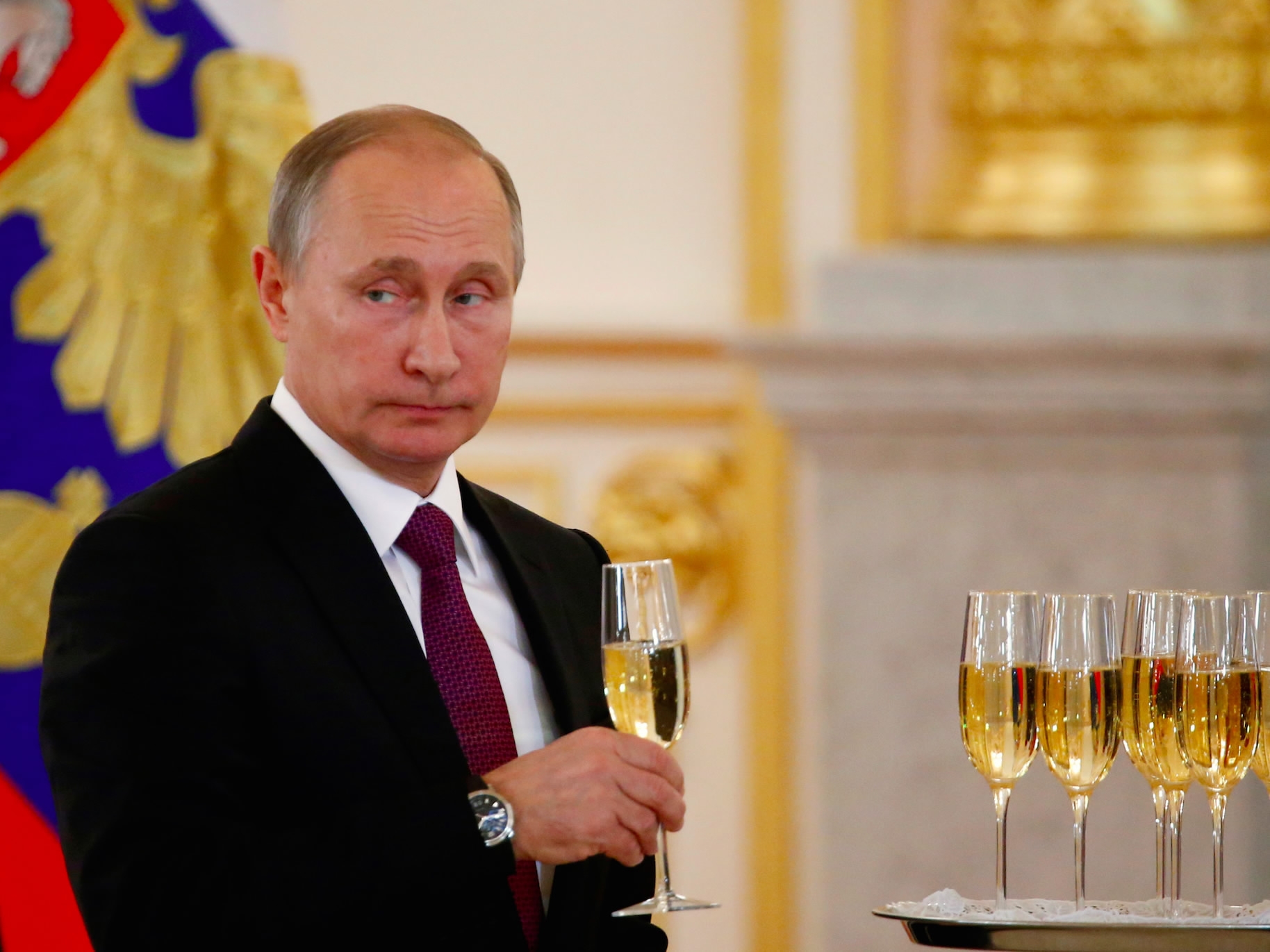
Russia's President Vladimir Putin holds a glass during a ceremony for receiving diplomatic credentials from foreign ambassadors at the Kremlin/ Reuters Photo
Russia's President Vladimir Putin holds a glass during a ceremony for receiving diplomatic credentials from foreign ambassadors at the Kremlin/ Reuters Photo
Following Putin's announcement, analysts voiced their opinions about what to expect after Putin wins another six-year term. The biggest question coming out of the reelection in 2018 is how the power will transfer after Putin's term ends in 2024.
"The main task for the Kremlin is to adapt the regime to Putin's future status - be it an extension of presidential powers or the creation of a new post," said Tatyana Stanovaya, a Paris-based analyst for the Center of Political Technologies in Moscow.

SITEMAP
Copyright © 2018 CGTN. Beijing ICP prepared NO.16065310-3
Copyright © 2018 CGTN. Beijing ICP prepared NO.16065310-3